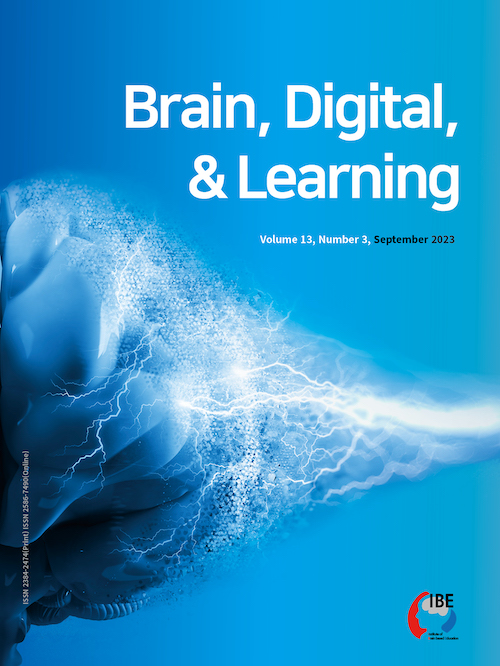Current Issue

Volume 15, Issue 1
Page 1-127
March, 2025
RESEARCH ARTICLE
- The Characteristics of Students’ Eye Movement According to the Introduction Presentation Method of Text and Illustrations in Elementary Mathematics Textbook
This study examines the characteristics of eye movement during problem-solving based on the presentation of introductory text and illustrations in mathematics textbooks and proposes effective presentation methods. Text and ......
- Development of Planning and Prediction of Difficulty in Young Children: An fNIRS Study
This study examined the activation of the anterior prefrontal cortex (aPFC) in young children during block-building planning and explored whether activation levels and difficulty predictions varied by age. A total of 124 children, ......
- Difficulties and Solutions Experienced by Content Experts in the Process of Developing a Science Curriculum Ontology
This study examines the difficulties faced by content experts in the ontology development process for science education and explores issues encountered in collaboration with developers. The findings aim to provide foundational ......
- Development of a Scale for Evaluating Secondary School Field Practice Programs
The school field practicum program is crucial for enhancing the teaching competencies of pre-service teachers. This study aimed to develop a suitable scale to evaluate how field practicum programs are operated in secondary ......
- Analysis of Inquiry Activity and Required Equipment in the 2022 Revised Science Curriculum
This study aims to analyze the types and characteristics of inquiry activities in the 2022 revised science curriculum. To achieve this, inquiry activities were categorized into five types, and those presented in the curriculum ......
- Exploratory Study on the Relationship Between Middle School Students' Perceptions of STEM and Science Motivation by Ethnicity: A Multilevel Model Analysis
Examining the changes in students who have undergone integrated education and providing appropriate follow-up measures is crucial for enhancing educational effectiveness. This exploratory study aims to analyze the impact of ......
- Analysis of Elementary Students' Attention in Video-Based Review and Preview for Science Classes
The use of videos for review and preview has been widely adopted as a strategy to complement classroom instruction. The purpose of this study is to analyze elementary school students' attention and gaze allocation in ......
